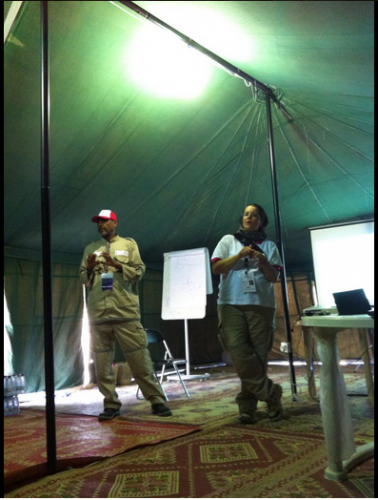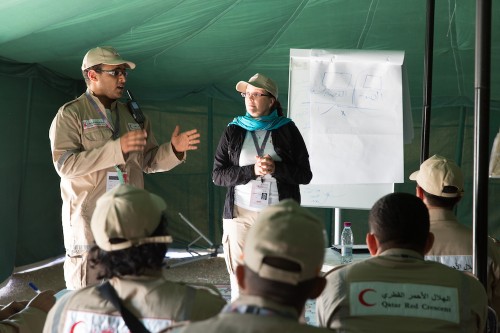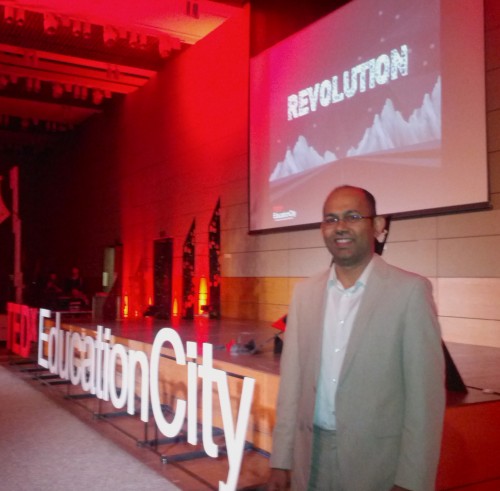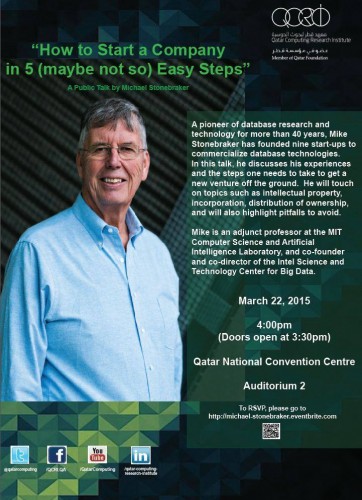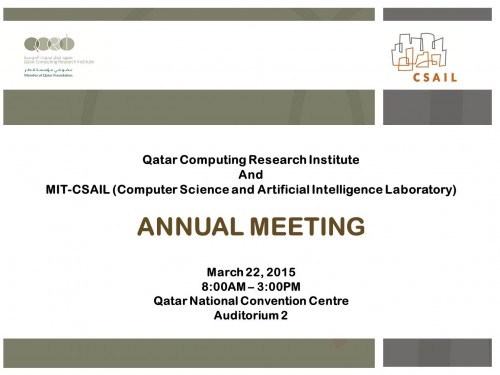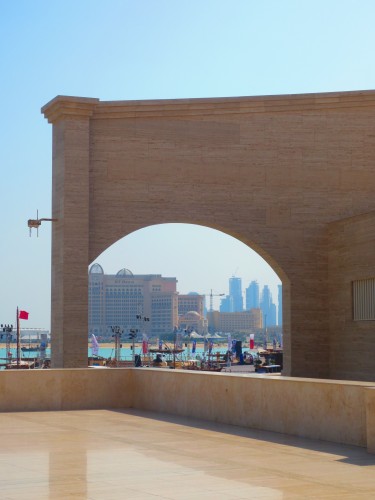We are only global if we learn and share. Imagine yourself standing in a classroom. The students are earnest, you have some translation help, and the host humanitarian organization is very supportive. You are there sharing big new concepts inviting participation. At Qatar Red Crescent 6th Annual Disaster Management Camp there are people from all the Middle East/North Africa region, they have varied skills with a range of some to no field experience. Often I ask how can we get the next 1 Million people involved in their world using digital skills. How will their digital training curriculum function? How do we share the skills and ideas in ways that are easy to learn and remix? And, how can we do this in a way that is inclusive and respectful of local language, local knowledge and local cultures?
There is an opportunity to create a community of Digital Qataris or inspire more Digital Humanitarians in the MENA region, including within the humanitarian organizations. As the World Humanitarian Summit approaches, there are many regional consultation meetings and reports. In reading the World Humanitarian Summit MENA reports, I was struck with how much opportunity there is to encourage youth engagement and to consider technology. This can only happen if there are sponsoring humanitarian organizations, long term training strategies and shared resources. The Qatar Red Crescent is incredibly focused on how they can make a difference. This event includes people training from all over the MENA region. In between trainings and scenarios, we talk about the future and learn about each other’s common goals.
In my conversations with participants and staff at the Qatar Red Crescent Disaster Management Camp (DMC), we determined a gap in the knowledge transfer to support Digital Humanitarian work in the MENA region. Qatar Computing Research Institute (QCRI) has a mission to use our tools and innovation techniques in Qatar. Experience at the DMC identified a deep willingness of both staff and participants to learn and incorporate these tools and techniques into their work and volunteer workflows. However, there are knowledge gaps and language barriers. Successful programs for QCRI and our Digital Humanitarian partners will be greatly aided if we can get some core documents into Arabic. This means a prioritization and translation effort.
Over the coming weeks, I will work with my Qatar Red Crescent colleague to make a list of the resources and tools that need to be in Arabic. Then, we will work on plan for how to support
Curate a list of Digital Humanitarian Resources to be translated
There are a few core documents that need translation into Arabic. I’ve identified these based on my conversations with the staff and participants at the Qatar Red Crescent. After the Disaster Management Camp, we will coordinate with the authors, organizations and communities. I’ll be working with my team at QCRI to get our tools and resources translated soon. (It seems to me that if we have a strong list, it would be great to have these translated into many languages.)
Some key resources:
- SMS Code of Conduct
- Digital Humanitarian Code of Conduct
- Guidance for Collaborating with Volunteer and Technical Communities
- Collaborating with Formal Organizations
Verification was a big topic of discussion in our sessions. It was great to see that Meedan has translated the Verification Handbook into Arabic.
This is where your help is needed. Which digital resources do you recommend for Humanitarian work? Simply add your items into this document in the 2nd section of the document below.
HELP WANTED: Curated list of Digital Humanitarian Resources to be translated into Arabic
Thanks so much for your help! More on this project as we keep learning.
(Photo by Hannen Suliman, April 5, 2015)
